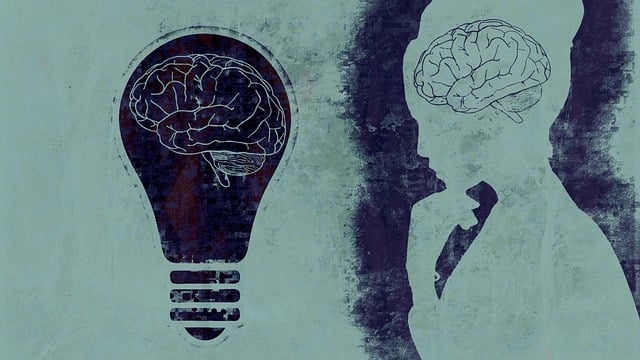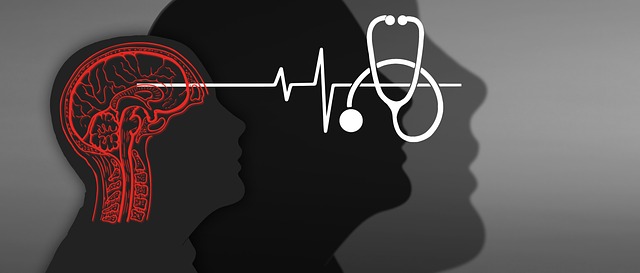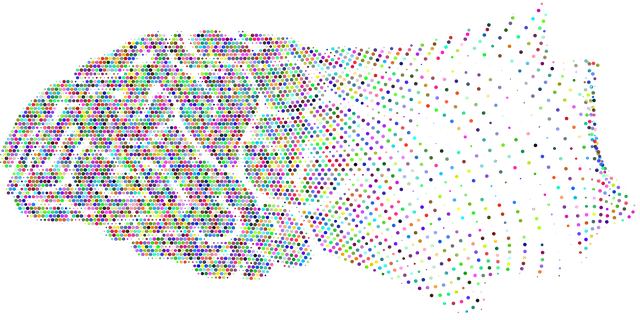The Parker Spiritual-Religious Issues Therapy approach recognizes that cultural and personal beliefs heavily impact mental health, requiring therapists to develop strong empathic connections, cultural competency, and tailored self-care routines aligned with clients' spiritual frameworks. This structured risk management model integrates spiritual aspects into therapy, facilitating comprehensive client assessments and enhancing decision-making through nuanced approaches, evidence-based practices, and regular self-care. Crisis planning, focusing on building resilience, and proactive burnout prevention are key to navigating unexpected challenges while ensuring quality care. Continuous evaluation, adaptability, and integration of new research and best practices, like emotional intelligence methods, are crucial for successful mental health practice in addressing the dynamic nature of clients' well-being.
Mental health professionals confront unique challenges, particularly when addressing sensitive areas like spiritual and religious issues. Effective risk management planning is paramount to ensure safe and ethical therapy. This article explores comprehensive strategies for navigating these complexities, focusing on the Parker Model, a powerful tool for assessing risks in Spiritual-Religious Issues Therapy. We delve into identifying hazards, crisis preparedness, and adaptive evaluation, offering insights crucial for professionals seeking optimal patient outcomes.
- Understanding Risk in Spiritual-Religious Issues Therapy
- The Parker Model: A Framework for Comprehensive Risk Assessment
- Identifying and Mitigating Potential Hazards
- Crisis Planning and Preparedness Strategies
- Continuous Evaluation and Adaptability in Mental Health Practice
Understanding Risk in Spiritual-Religious Issues Therapy

In Parker Spiritual-Religious Issues Therapy, understanding risk involves recognizing how cultural and personal beliefs can impact a client’s mental health. Many individuals seek therapy to explore spiritual or religious aspects of their lives, which may be complex and emotionally charged. Mental health professionals must approach these issues with sensitivity and an awareness of potential risks. For instance, if a client’s religious beliefs conflict with therapeutic recommendations, it could lead to resistance or even disengagement from treatment.
Building empathy and cultivating a strong therapeutic alliance are crucial strategies here. Healthcare providers should undergo training in cultural competency to navigate these delicate matters effectively. By understanding the client’s spiritual framework, therapists can tailor their approach, ensuring that self-care routine development for better mental health is not at odds with religious beliefs. This thoughtful consideration fosters trust and encourages clients to embrace practices that support both their spiritual growth and overall well-being.
The Parker Model: A Framework for Comprehensive Risk Assessment

The Parker Model offers a structured approach to risk management, particularly relevant for mental health professionals navigating complex client needs. This framework emphasizes a comprehensive assessment process that delves into various aspects of a client’s life, including spiritual-religious issues in therapy. By integrating these dimensions, it ensures a holistic understanding of potential risks and triggers. The model guides therapists through a systematic exploration of the client’s background, beliefs, and current circumstances, facilitating informed decision-making.
For mental wellness professionals, adopting this strategy means enhancing their ability to provide tailored guidance, such as suggesting mental wellness journaling exercises or implementing community outreach program initiatives. Moreover, by acknowledging and addressing spiritual-religious concerns in therapy, healthcare providers can prevent burnout and promote healthier interactions, thereby fostering better patient outcomes.
Identifying and Mitigating Potential Hazards

In the realm of mental health therapy, identifying and mitigating potential hazards is a cornerstone of effective risk management planning. Mental wellness podcast series production often highlights real-world challenges faced by therapists, including Parker Spiritual-Religious Issues Therapy cases that demand nuanced approaches. These issues can range from managing patients’ complex emotional intelligence to addressing past traumas that may resurface during therapy sessions.
Trauma support services play a crucial role in mitigating these risks. By integrating evidence-based practices and staying informed about the latest research, mental health professionals can create safe spaces for their clients. Regular self-care routines and supervision are essential tools to prevent burnout and ensure therapists remain equipped to handle diverse client needs, ultimately enhancing the overall effectiveness of therapy sessions.
Crisis Planning and Preparedness Strategies

Mental health professionals are often faced with unexpected crises that demand immediate attention and effective management. Crisis planning is a vital component of risk management, ensuring practitioners are prepared to handle situations that may impact their well-being and that of their clients. This involves developing strategies tailored to individual practices, especially when addressing spiritual-religious issues in therapy, as it can be a sensitive yet powerful tool for healing.
By integrating self-esteem improvement and inner strength development techniques into crisis planning, healthcare providers can enhance their resilience. This proactive approach not only benefits the therapist but also fosters a healthier therapeutic environment. Additionally, burnout prevention strategies are essential, considering the demanding nature of mental health work. Implementing these measures can create a robust framework for navigating challenging situations, ensuring professionals remain equipped and prepared to offer quality care.
Continuous Evaluation and Adaptability in Mental Health Practice

Mental health professionals must embrace continuous evaluation and adaptability to effectively navigate the complex landscape of their clients’ well-being. The nature of mental illness is dynamic, evolving over time, and so too should therapeutic approaches. This ongoing assessment process involves regular monitoring of client progress, adjusting treatment plans accordingly, and integrating new research and best practices into practice. For instance, recognizing cultural shifts in beliefs about mental health, such as stigma reduction efforts, calls for a flexible approach that respects diverse spiritual-religious issues while applying evidence-based techniques like emotional intelligence and conflict resolution methods.
Adaptability also requires professionals to stay current with emerging trends in the field, including innovative interventions and advanced therapeutic modalities. Staying agile enables practitioners to tailor their services to meet the unique needs of each client, ensuring a high level of care that is responsive to change. This continuous evaluation and adaptability are cornerstones for successful mental health practice.
Mental health professionals must navigate complex ethical territories, especially when addressing spiritual-religious issues. By understanding risk factors through frameworks like the Parker Model, practitioners can conduct comprehensive assessments and implement effective crisis planning. Identifying potential hazards and fostering adaptability ensures safe and nurturing environments for clients’ well-being. Embracing continuous evaluation in Parker Spiritual-Religious Issues Therapy allows professionals to stay vigilant and responsive to changing client needs, ultimately enhancing their practice’s effectiveness and resilience.














